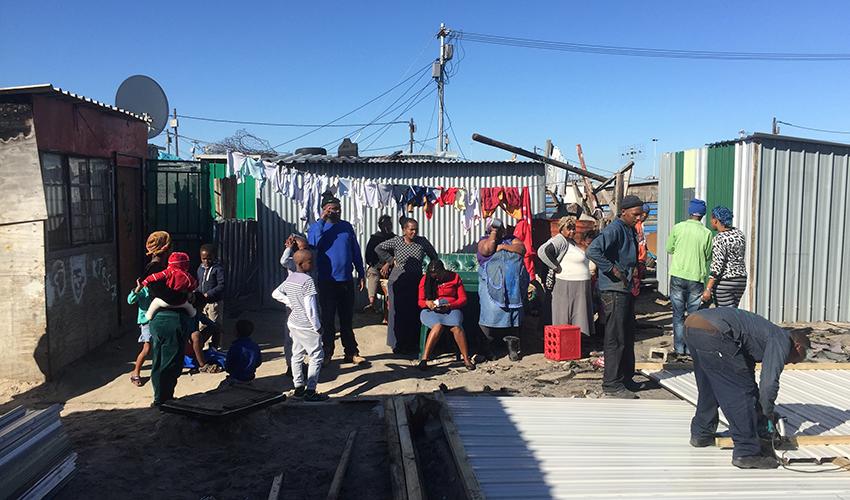Learning From Below

What is the role of architects in upgrading informal settlements in a time of environmental change and rapid, unplanned urbanization?
In response to climate change, inequality, and rapid urbanization, architects all over the world are exploring humanitarian design. Participation and stakeholder engagement are assumed to empower vulnerable and marginalized societies but not enough is known about the barriers to architects contributing to structural change. Over the course of 3 months at Oxford, Jessica researched the current narrative of humanitarian architecture as well as a Case Study: an in situ, incremental urban upgrade project in Cape Town that challenges urban policy and pushes participatory approaches.
Through interviews and participant observation with stakeholders Jessica drew the following conclusions:
- There is a significant gap between the formal and informal existences in Cape Town that is unnavigable for those without resources.
- Architects and NGOs are in unique positions to create pathways in the grey area between bureaucracy and informality.
- Unambitious and unaccommodating bureaucracy is a barrier to equitable development.
- Architects need to be leaders, pushing regulations that restrict equitable progress, as well as facilitators partnering with communities.
Jessica Glennie finished her BArch at the University of Texas at Austin in 2015 and went on to read for the Master of Science in Environmental Change & Management and the Master of Business Administration while at Oxford on a Rhodes Scholarship. She is now at Gensler in Austin as a technical designer, pursuing ways to make cities more inclusive, affordable, and vibrantly diverse.
__________
Goldsmith Talks is an open-format series of presentations organized by UTSOA faculty, staff, and students. the series aims to encourage and promote presentations that are outside of the scope of the main lecture series. Examples are: invited seminar presentations, book talks, lectures by designers and scholars who may be in Austin for another engagement, round-table discussions, film screenings, product demonstrations, or any other activity related to research, scholarship, and teaching activities and at the school. The format provides a platform for encouraging the dissemination of work by visitors and members of our community. The goal is to raise awareness, increase access, and better integrate such events within the public life of the school.

